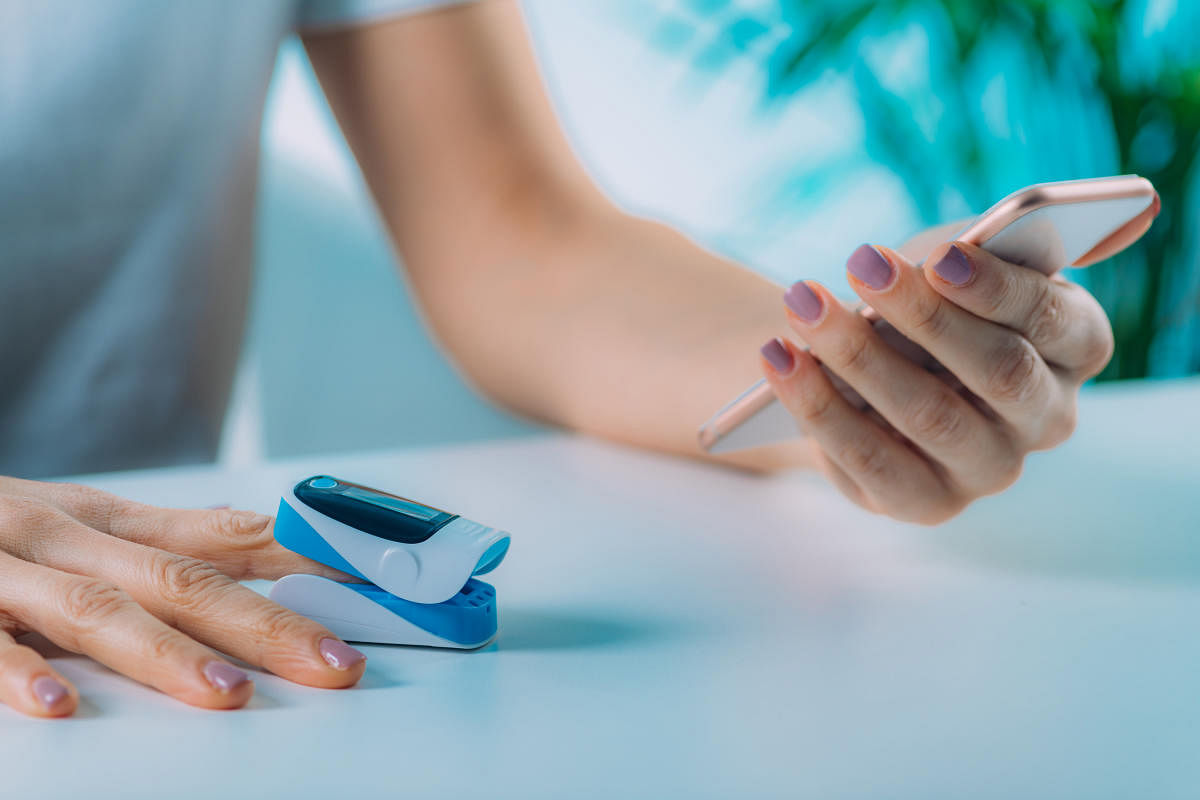
The second wave is upon us. If you test positive it would be natural to feel anxious and panicked. However arming yourself with the right knowledge can help you tackle the situation better. Hospital admission should only be considered if one has difficulty breathing or if oxygen saturation is falling below 94 per cent. Otherwise, you are expected to isolate yourself at home and follow the treatment protocol as advised by your doctor. Here’s a list of dos and don’ts from Dr Raghu J, senior consultant, internal medicine, Dr Yunus Sheriff, pulmonologist and Dr Brunda MS, consultant, internal medicine.
Do’s
* Isolate yourself in a room with a separate washroom.
* Keep track of your symptoms using a pulse oximeter and a thermometer at an 8-hour interval.
* “Cover your nose and mouth while coughing and sneezing. Discard used tissues properly in a closed trash bin,” says Dr Raghu.
* Wear a good quality mask at all times.
* “Sanitise properly and thoroughly. Wash hands with soap and water quite often. Clean all surfaces that are touched often, such as counters, phones, doorknobs, bathroom fixtures, toilets, keyboards, tablets, and bedside table,” says Dr Raghu.
* “Keep distance from elderly persons at home and those with comorbidities,” says Dr Brunda.
* Stay hydrated, and eat simple food that is easy to digest. “Eat a balanced and nutritious diet consisting of fruits, vegetables, legumes, proteins, nuts, and whole grains can help in faster recovery. Along with a balanced diet, consuming boiled water, soup, homemade juice, etc. can be beneficial for one’s health,” says Dr Brunda.
* Sleep and rest well.
* Do breathing exercises.
* Always keep emergency numbers in handy.
* Stay in touch with a doctor through video consultation, calls or even Whatsapp, says Dr Yunus.
* Seek counselling services when necessary.
Don’ts
* “Do not wait for the test results to come in. Start isolating yourself immediately after you start experiencing symptoms,” says Dr Yunus.
* Do not share any personal items with other people in the household, such as dishes, towels, bedding, food, toiletries, etc.
* “Avoid self-medication. It is recommended to take advice from doctors before taking any medicines,” says Dr Raghu.
* Avoid going out or meeting visitors. Avoid meeting anyone coming from outside, says Dr Yunus.
* “Don’t let your caregiver enter the room and have them offer support only from the outside,” says Dr Yunus.
* Avoid consuming cold items that can aggravate certain symptoms.
* Avoid panicking, and simply follow the guidelines.
* Consume less sugar-based items and sugary drinks.
* “Avoid smoking, tobacco and consuming alcohol,” says Dr Raghu.
Guidelines for the family members / Caregiver
Taking care of a Covid-positive patient can be overwhelming. Here are some
dos and don’ts for caregivers, courtesy Dr Brunda MS, consultant, internal medicine.
* The caregiver should be an adult and in good health.
* Wear medical / N-95 facemask always both indoor & outdoor.
* Practice hand hygiene before and after preparing food, before eating, after using the toilet, whenever hands look dirty and before and after removing gloves. Wash your hands with soap and water at least for 40 seconds or use an alcohol-based hand rub.
* Avoid direct contact with body fluids/utensils of the Covid-positive person.
* Do not panic. Do not stigmatise. Keep the person cheerful and boost their morale.
* Ensure that the person is in strict home isolation.
* Maintain a physical distance of at least 2 meters/ 6 feet from the person.
* Strictly do not allow visitors till the person is released from home isolation.
* Do not meet or allow any visitors into your home until the 14 day quarantine period is over.
* All family members must self-monitor their health, body temperature and report promptly if they develop any symptom suggestive of Covid-19.